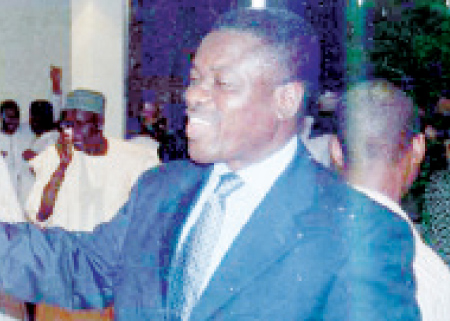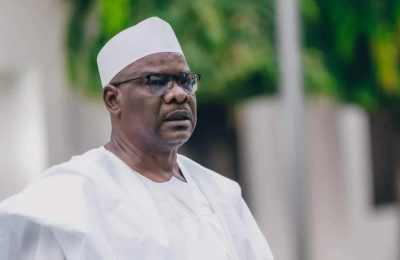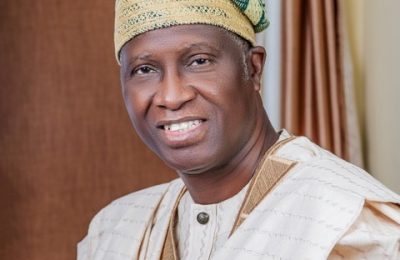Buy Daily Times, Daily Express and Morning Post…Nigerian Tribune. That was the refrain of the vendors of the 60s and 70s in their early morning trade of newspaper hawking. Accompanied by the rhythmic blast of the bicycle horn that was the vendors’ trademark. This refrain gave Nigerians the feel of the arrival of the crusader who had the keys to all the dark secrets of governance and societal aberrations, the rise and fall of the high and mighty, the oppression of the masses and the agenda of those who stood to fight their cause.
The newspaper, in those days, was the crystal ball of the people that guided their knowledge of and reactions to the events around them. Once the newspaper published it, it was the crystal truth. Oh! The power and prestige of newspaper editors and publishers in those days. A power and influence only matched today by the pervasive control of the souls of men by spiritual leaders of all dimensions. Such was the influence of the Nigerian Tribune publications, including Irohin Yoruba, in the western axis of Nigeria in particular. It was precisely this influence over the minds and actions of people, particularly in the sphere of political decisions, that opened the Nigerian Tribune up to the events that earned it the pseudonym APA MAKU. Following the political crisis of the early 60s in Western Region, governments of political opposition to Papa Obafemi Awolowo, the founder of the Nigerian Tribune, repeatedly took measures to kill the newspaper. At various times, it was banned, prohibited from circulation, its offices raided, its assets seized, its staff arrested and jailed, yet the newspaper kept on publishing, albeit underground for the greater part of this turbulent period in Western Nigeria. APA MAKU, the one who defies the death knell, survived not only the times but all those who contrived and plotted its death. Seventy-five years old, it is waxing stronger by the years.

Of all the newspapers that the vendor so proudly proclaimed in the 60s and 70s, the Tribune is the only one that is really alive today. In spite of the repeated attempts of the Daily Times at resurrection, it still lies comatose today. Daily Express and Morning Post have long been landlords in the ever-enlarging abyss of forgotten newspapers.
Why has the Tribune survived for 75 years? The resilience of the newspaper was rooted in its early days in the dedication and commitment of the staff. The Tribune was a passion for those who worked there in its days at Adeoyo in Ibadan. The pay was not great, the environment was not great either, but the challenges of getting out a newspaper that was a voice of the people, challenging governments and the political establishment, was an invaluable experience.
With Alhaji Lateef Jakande as Managing Director, young journalists like Eric Teniola, Soji Alakuro, Mufu Akinloye, Folu Olamiti, Bode Oyewole, Bayo Osiyemi, Toye Akiyode, Kayode Osifeso, who were later to play important roles in defining the media space in Nigeria, learnt the very difficult ropes of combative reporting and rugged journalism. Newspapers that rolled out in later years like The Punch, The Guardian and even broadcast media like NTA and FRCN profited from the rich staff base of the Nigerian Tribune as many of the young journalists trained there migrated to these media organs.
Anything that has its roots in the days of old is bound to suffer the pull of modernity. Old practices must give way to the new. By the 1980s, it was becoming clear that the newspaper had to rethink, reassess, re-tool and re-emerge. The emergence of new and modern-styled newspapers was providing difficult challenges. Perhaps the Nigerian Tribune would have gone the way of its compatriots of the early 60s but for an event of 1986. Mr Felix Adenaike was Editor-in-Chief at this time. His iron hand in pushing the Nigerian Tribune to modernity was beginning to ruffle feathers. Editorial staff were not in accord with his style of effecting change. Felix Adenaike was bullish and would brook no hindrance. A management arrangement that was a little awkward for a newspaper house also did not help matters. Issues got to a head and the editorial staff of the newspaper went on strike and the Tribune publications were off the street.
I had joined the Tribune as a member of the Editorial Board in January 1986 and was a part of these events. My entry into the Tribune was one of the early steps of Felix Adenaike to introduce new blood into the newspaper. Everyone knows how difficult it is to break conservative strongholds. And the Tribune of 1986 was indeed one. The environment that I met at editorial conferences was a little strange to me and I did not keep quiet about it. A shabby appearance commands no respect and a journalist who commands no respect could not compete for news in the emerging media environment of the 80s. I remember raising this matter at an editorial conference and a couple of the homegrown conservatives shouted me down, ‘ba se nse nkan wa niyen, a de nta’ (That’s the way we have been operating and our paper sells well).
Anyway, the strike went on from days to weeks and it appeared as if APA MAKU was finally going to die. The staff would not return to work unless Felix Adenaike was removed as Editor-in-Chief. A few of us didn’t agree with the strike. If Adenaike’s tactics were too hardline, his goals were obviously laudable if the Tribune was going to survive. A Board of Directors meeting was eventually called to resolve the matter and those of us who didn’t agree with the strike felt we had to make a representation to the Board. About 15 of us made that representation to the board and I took the letter to Ikenne, venue of the board meeting presided over by Papa Obafemi Awolowo. I delivered the letter to the meeting and waited to be sure Papa got it. Shortly after, I was summoned by Papa into the meeting. He asked a few questions and gave me a message for those of us who signed the presentation. Thereafter, the board issued an ultimatum for a return to work and those who didn’t heed the call were relieved of their appointments. It was an important moment for the Tribune. It marked the beginning of a new life for the newspaper. New appointments were made in tune with the modern realities of the newspaper industry. Diploma certificates, and experience on the job were no longer suitable credentials for editorial appointments. First and second-degree holders were recruited as reporters and line editors. The editorial board was strengthened by two professors of the University of Ibadan and a couple of PhD holders. The Tribune had arrived on the stage of serious national intellectual discourse. That tradition has not only survived but has in fact been strengthened to this day. Whether we like it or not, credit must go to Felix Adenaike, Editor-in-Chief 1980-1990, for the foundation of the new Tribune.
Of course, great structures have since been built on that foundation by other people. The Tribune has not looked back since those days. With the power of a well-educated, confident and brilliant staff, the newspaper broke into several national issues that were hitherto hidden from Nigerians. The newspaper broke the rift in the Babangida government with that revealing interview with Lt-General Domkat Bali, where he revealed that the Armed Forces Ruling Council was a one man (Babangida) show. For those who know, that story changed a lot of things in military governance of that period. No longer was the Tribune respected only as a political newspaper, its dominance in general news reporting, excellent editorial comments, outstanding sports reporting and commendable informed commentaries, was firmly established. I remember El-Hadj Alade Odunewu’s comments when my Cockatoo column article titled ‘Talent jam Merit’ won his prize for Informed Commentary in the Diamond Award for Media Excellence (DAME) in 1997. He said ‘I know that the Tribune has joined the league of the front runners’. How correct El-Hadj was, the only thing is that the Tribune had joined that league much earlier than he realised.
In Oyo State, during the tenure of Chief Bola Ige as governor, a man called Nosiru Bello who had been sentenced to death by a court of competent jurisdiction was executed while he had an appeal pending. Governor Bola Ige had clearly inquired of the Ministry of Justice if the man had an appeal pending. He was told there was none. He signed the execution warrant and Nosiru Bello was hanged. The Tribune broke the story, followed and stayed with the story until reforms that would make such errors impossible in the future were instituted.
As the newspaper grew in editorial stature, so did it grow as a business concern. In my days as Editor-in-Chief, conspicuous notices were placed at strategic locations in the editorial offices that said “THE BUSINESS OF NEWS IS MORE BUSINESS THAN NEWS’. A newspaper that would be impactful, effectively meet the editorial needs of the people and serve as a guiding light to society, must first succeed as a business. Money addresses all issues. Because the quality of staff of the newspaper was right, its reporters pivoted revenue-earning efforts through advertisements and the strong editorial output boosted copy sales. Chief Accountant, Foluso Aminu, excitedly told me sometime in 1996, ‘owo yen kan nya wole ni’ – a deluge of cash flow. Attendant salary increases influenced the standard for the industry then as it was necessary to look at others in fixing your salaries if you were to attract the best staff.
With good pay, it was not difficult to attract good staff. So successful was the Tribune at this that many of the very capable hands that were brought in in the emergence of the new Tribune are today the pillars of the newspaper company.
Edward Dickson, who is Managing Director and Editor-in-Chief; Debo Abdullahi who is Daily Editor, Lasisi Olagunju who is Editor, Saturday Tribune; Sina Oladeinde, Editor, Sunday Tribune; Festus Adedayo, ace columnist, all of whom I had the privilege of signing on to the newspaper in the 90s.
So impactful has their training at the Tribune been that some of them have been found invaluable as aides to important political actors. Lasisi Olagunju served meritoriously in Osun State, Festus Adedayo served in Enugu and Oyo states; Laolu Akande, a former editor of the TrIbune on Saturday served as aide to former Vice President Osinbajo. Wale Ojo Lanre, a former Arts and Tourism editor has been championing tourism reforms and innovations in Ekiti State. I must not forget to mention myself. The Tribune prepared me to make major contributions to the media industry as Editor-in-Chief in three other media houses, two of which I had the duty of kicking off. Who is it that would have passed through the Tribune house without being armed for further challenges in the media or other endeavours of life. Even those of us who are retired into ecclesiastical duties have found our experiences at Imalefalafia invaluable. APA MAKU has long hands, stretching into almost all areas and arenas of endeavour in the Nigerian polity.
Warn your boys
Was it all a smooth sail at the Tribune? Of course not. The bug of closure by government that bit some newspapers in the days of the military did not spare the Tribune. Goodwill and grace spoke for the newspaper when the hammer of closure hung over it. One occasion stands out. In the days of the Abacha government, Lt-General Oladipo Diya, Chief of General Staff in that government, had a close shave in an explosion that occurred at the Abuja airport. Shortly after that, the Tribune on Saturday published a headline story ‘Who wants Diya dead?’ Unfortunately for us, the story was published the day Diya was arrested for coup plotting. Laolu Akande was the editor of the paper. Laolu’s sister was Major Seun Fadipe’s wife. Major Fadipe was Diya’s Chief Security Officer. I as Editor-in-Chief was in Abuja that day for an appointment with General Diya. I was on my way to Diya’s house when I received a call from my friend Brigadier-General Yakubu Muazu, that the CGS (Diya) had been arrested. Somehow, this spate of coincidences was brewing trouble for us with the security agencies. Things were, however, sorted out after much explanations. The then publisher, Chief Oluwole Awolowo was asked to warn his boys, lest the Tribune be shut down.
An albatross on the neck of the Tribune for many years was its rather strange management structure. After the tenure of Alhaji Lateef Jakande as managing director and Editor-in-Chief, the two positions were split. For many years, nonjournalists held sway as Managing Director. The crises that arose from this structure slowed down the growth of the Tribune, in some instances drawing it back. Two managements had to be dispensed with because of the conflicts arising from this arrangement. Thank God, the situation has been normalised. With this correction, the forces of death that stalked the corridors of the Tribune House have been dislodged and APA MAKU shall live forever more.
- Pastor Biodun Oduwole is a former Editor-in-Chief of the Nigerian Tribune.
READ ALSO: Police reject N174m bribe, arrest suspected internet fraudster in Lagos







